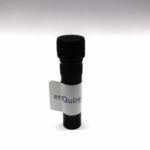Human, Mouse (-), and Rat (-) Anti-Bcl-2 Antibody Product Attributes
Bcl-2 Previously Observed Antibody Staining Patterns
Observed Subcellular, Organelle Specific Staining Data:
Anti-BCL2 antibody staining is expected to be primarily localized to the nuclear membrane and nucleoplasm.
Observed Antibody Staining Data By Tissue Type:
Variations in Bcl-2 antibody staining intensity in immunohistochemistry on tissue sections are present across different anatomical locations. An intense signal was observed in cells in the endometrial stroma in endometrium, cells in the white pulp in spleen, glandular cells in the endometrium, epididymis, fallopian tube, prostate, seminal vesicle and thyroid gland, hematopoietic cells in the bone marrow, lymphoid tissue in appendix, melanocytes in skin, non-germinal center cells in the lymph node and tonsil, ovarian stroma cells in the ovary, peripheral nerve/ganglion in colon, respiratory epithelial cells in the bronchus and nasopharynx and trophoblastic cells in the placenta. More moderate antibody staining intensity was present in cells in the endometrial stroma in endometrium, cells in the white pulp in spleen, glandular cells in the endometrium, epididymis, fallopian tube, prostate, seminal vesicle and thyroid gland, hematopoietic cells in the bone marrow, lymphoid tissue in appendix, melanocytes in skin, non-germinal center cells in the lymph node and tonsil, ovarian stroma cells in the ovary, peripheral nerve/ganglion in colon, respiratory epithelial cells in the bronchus and nasopharynx and trophoblastic cells in the placenta. Low, but measureable presence of Bcl-2 could be seen inadipocytes in breast and mesenchymal tissue, exocrine glandular cells in the pancreas, glandular cells in the duodenum, gallbladder and small intestine and squamous epithelial cells in the esophagus. We were unable to detect Bcl-2 in other tissues. Disease states, inflammation, and other physiological changes can have a substantial impact on antibody staining patterns. These measurements were all taken in tissues deemed normal or from patients without known disease.
Observed Antibody Staining Data By Tissue Disease Status:
Tissues from cancer patients, for instance, have their own distinct pattern of Bcl-2 expression as measured by anti-Bcl-2 antibody immunohistochemical staining. The average level of expression by tumor is summarized in the table below. The variability row represents patient to patient variability in IHC staining.
| Sample Type | breast cancer | carcinoid | cervical cancer | colorectal cancer | endometrial cancer | glioma | head and neck cancer | liver cancer | lung cancer | lymphoma | melanoma | ovarian cancer | pancreatic cancer | prostate cancer | renal cancer | skin cancer | stomach cancer | testicular cancer | thyroid cancer | urothelial cancer |
|---|---|---|---|---|---|---|---|---|---|---|---|---|---|---|---|---|---|---|---|---|
| Signal Intensity | ++ | – | – | – | + | – | – | – | – | +++ | +++ | – | – | – | ++ | – | – | – | – | – |
| BCL2 Variability | ++ | ++ | + | ++ | ++ | ++ | + | + | ++ | ++ | ++ | ++ | ++ | + | ++ | ++ | + | + | ++ | + |
| Bcl-2 General Information | |
|---|---|
| Alternate Names | |
| Bcl-2, B-cell lymphoma 2, BCL2 | |
| Molecular Weight | |
| 25-26kDa | |
| Chromosomal Location | |
| 18q21.33 | |
| Curated Database and Bioinformatic Data | |
| Gene Symbol | BCL2 |
| Entrez Gene ID | 596 |
| Ensemble Gene ID | ENSG00000171791 |
| RefSeq Protein Accession(s) | NP_000624, XP_016881406, NP_000648, XP_011524437 |
| RefSeq mRNA Accession(s) | XM_011526135 NM_000633, XR_935248, XM_017025917, NM_000657 |
| RefSeq Genomic Accession(s) | NG_009361, NC_000018, NC_018929 |
| UniProt ID(s) | A0A024R2B3, A0A024R2C4, P10415 |
| UniGene ID(s) | A0A024R2B3, A0A024R2C4, P10415 |
| HGNC ID(s) | 990 |
| Cosmic ID(s) | BCL2 |
| KEGG Gene ID(s) | hsa:596 |
| PharmGKB ID(s) | PA25302 |
| General Description of Bcl-2. | |
| This antibody recognizes a protein of 25-26kDa, identified as the bcl-2 alpha oncoprotein. It shows no cross-reaction with Bcl-x or Bax protein. Expression of bcl-2 alpha oncoprotein inhibits the programmed cell death (apoptosis). In most follicular lymphomas, neoplastic germinal centers express high levels of bcl-2 alpha protein, whereas the normal or hyperplastic germinal centers are negative. Consequently, this antibody is valuable when distinguishing between reactive, neoplastic follicular proliferation in lymph node biopsies. It may also be used in distinguishing between those follicular lymphomas that express bcl-2 protein, the small number in which the neoplastic cells are bcl-2 negative. | |

![BCL-2 IHC Antibody Clone 124 Staining with Mouse Monoclonal BCL-2 [Clone 124] Antibody in formalin-fixed paraffin-embedded human non-Hodgkins Lymphoma. Note cytoplasmic and nuclear membrane staining.](https://cdn-enquirebio.pressidium.com/wp-content/uploads/2017/04/BCL-2-IHC-Antibody-Clone-124.jpeg)

![Bcl-2 Flow Cytometry Jurkat Cells (124) Mouse Monoclonal BCL-2 [Clone 124] staining in Jurkat cells. Intercellular staining (red) and isotype control (green).](https://enquirebio.com/wp-content/uploads/2019/01/Bcl-2%20Flow%20Cytometry%20Jurkat%20Cells%20(124).jpg)
![Staining with mouse monoclonal Bcl-2 [Clone 100/D5] antibody in formalin-fixed paraffin-embedded Jurkat cells. Staining is intercellular (red) with isotype control (green).](https://enquirebio.com/wp-content/uploads/2019/01/Bcl-2 Flow Cytometry Jurkat Cells (100 D5)-150x150.jpg)
-150x150.jpg)

-150x150.jpg)
-150x150.jpg)
-150x150.jpg)
![Staining with Mouse Monoclonal BCL-2 [100 D5 + 124] Antibody in formalin-fixed paraffin-embedded human non-Hodgkins Lymphoma. Note cytoplasmic and nuclear membrane staining.](https://enquirebio.com/wp-content/uploads/2019/01/Bcl-2 IHC human non-Hodgkins Lymphoma (100 D5 + 124)-150x150.jpg)

There are no reviews yet.